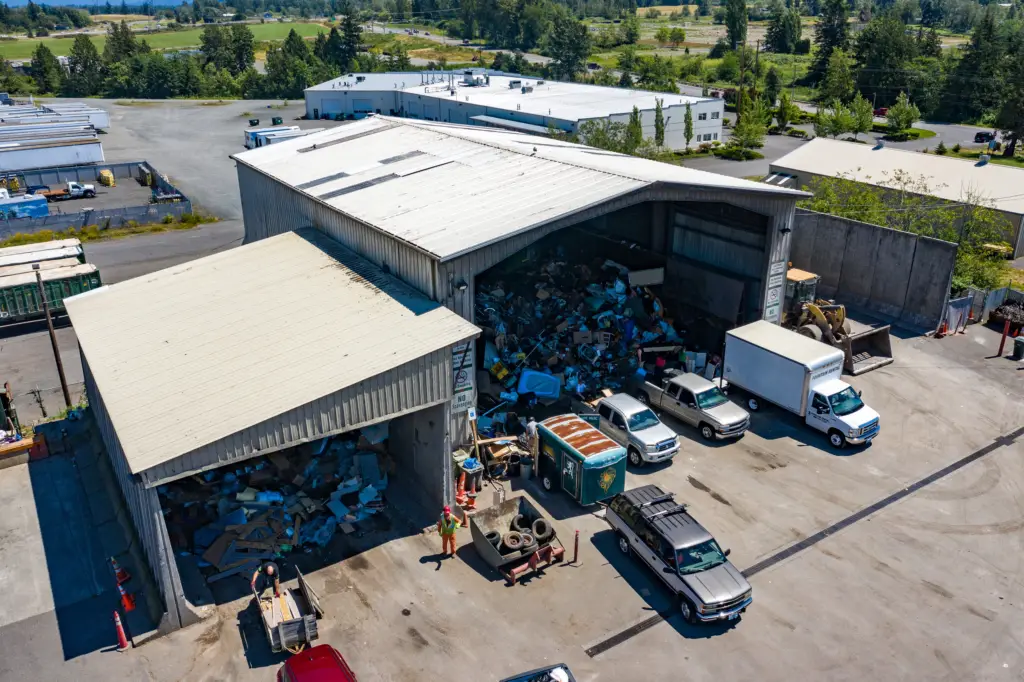Garbage Disposal on Your Environment is really important because it can affect the world around us. When we don’t dispose of our garbage properly, it can cause pollution and harm to the environment.
When garbage is left lying around, it can attract pests like rats and insects. This not only makes our surroundings look dirty and unkempt, but it can also spread diseases and cause health problems for people and animals.
Improper garbage disposal can also lead to pollution of the air, water, and soil. When trash is burned or left to rot, it releases harmful gases into the air, contributing to air pollution. Trash that ends up in rivers, lakes, and oceans can harm marine life and disrupt ecosystems.
Another problem with improper garbage disposal is that it can lead to habitat destruction. When garbage is dumped in natural areas like forests or wetlands, it can damage plants and animals and disrupt their homes. This can have long-term effects on biodiversity and the health of ecosystems.
Proper garbage disposal is essential for protecting the environment and keeping our communities clean and healthy. This means using designated trash bins or bags for waste, recycling materials whenever possible, and following local regulations for waste disposal.
By disposing of our garbage properly, we can help reduce pollution, protect natural habitats, and preserve the beauty of our environment for future generations to enjoy. So, let’s all do our part to keep our environment clean and healthy by practicing responsible garbage disposal habits.
In this article, we will discuss the impact of garbage disposal on your environment, the presence of Garbage band, and residential band pickup.
Read Also: The Impact of Waste to Compost Business
The Effects Of Residential Band Pickup

Residential garbage pickup is a convenience many of us take for granted. We wheel our trash bins to the curb, and like clockwork, it vanish from our lives. But what happens to our waste after it’s collected is a critical part of the environmental equation.
First and foremost, the sheer volume of waste generated by residential areas is staggering. Landfills across the world are overflowing, and it’s not just the unsightly mounds of trash that are problematic.
The decomposition of organic matter in these landfills produces methane, a potent greenhouse gas that contributes to climate change.
Moreover, the energy and resources required for the collection, transportation, and disposal of residential garbage have their environmental costs.
The carbon footprint associated with garbage trucks and the energy-intensive processes involved in managing waste all contribute to air pollution and carbon emissions.
The Presence of the Garbage Band

While residential garbage pickup may be the more visible aspect of waste management, there is another, less regulated, and more ominous entity – the garbage band.
These bands, often found in less developed or informal settlements, are makeshift dumping grounds where waste accumulates without any organized collection or disposal system.
Garbage bands pose several significant environmental threats. They are breeding grounds for disease, as they often attract vermin and insects that can carry harmful pathogens.
The contaminated water runoff from garbage bands can also leach into groundwater sources, affecting drinking water quality and aquatic ecosystems.
In many cases, burning garbage in these bands is a common practice to reduce the volume of waste. This creates air pollution, releasing toxic fumes and contributing to respiratory problems for nearby communities. The open burning of waste is a major source of particulate matter, which can have serious health consequences, particularly for children and the elderly.
The Burden on Biodiversity
The environment’s delicate balance is not only disrupted by the physical presence of waste but also by the chemical pollutants leaching from it.
Contaminants from garbage, including heavy metals, chemicals, and toxins, can infiltrate the soil and water, adversely affecting biodiversity.
Landfills, even when properly managed, can still leak harmful substances into the surrounding environment. Inadequately regulated garbage bands are even more dangerous in this regard.
These pollutants can accumulate in organisms, making their way up the food chain and posing threats to the health of plants, animals, and humans.
Read Also: A Guide to Waste Management Case Studies
The Importance of Recycling On Environmental Garbage Disposal

As we grapple with the environmental impact of garbage disposal, one of the most effective solutions lies in recycling. Recycling helps reduce the volume of waste sent to landfills and conserves resources. It also plays a vital role in reducing pollution and energy consumption associated with the production of new materials.
Recycling initiatives should be encouraged and supported on both individual and community levels. This includes segregating waste at the source and promoting the use of recycled materials in the production of goods.
In summary, Garbage disposal is not a simple matter of throwing things away and forgetting about them. Its impact on the environment is pervasive, affecting the air we breathe, the water we drink, and the health of the ecosystems around us.
Residential garbage pickup, though convenient, has its ecological footprint, while garbage bands are unregulated sources of pollution and disease.
It is essential for individuals, communities, and governments to take responsibility for their waste and to adopt environmentally conscious practices. Reducing waste, recycling, and embracing innovative waste management technologies are steps in the right direction.
By making conscious choices about how we manage our garbage, we can mitigate the harm done to the environment and work toward a more sustainable future.
Read Also: Health, Lifespan and Farming Guide of Catfish

